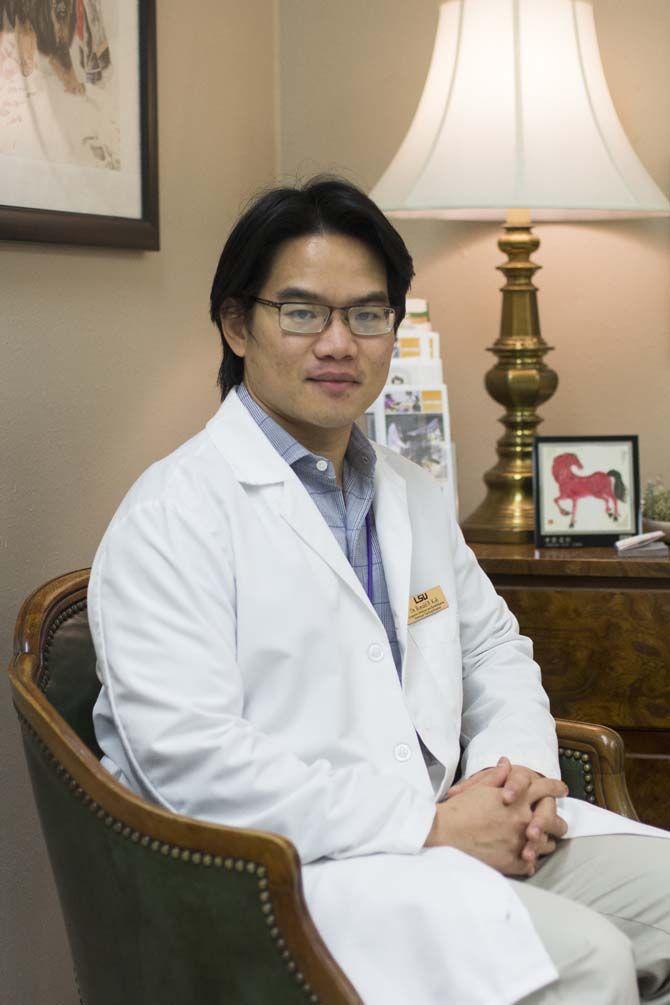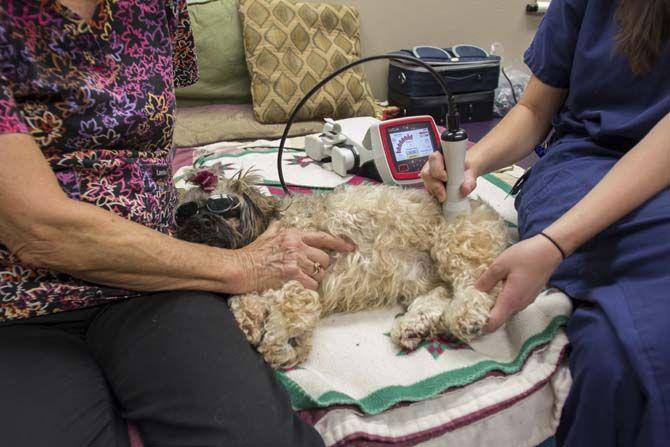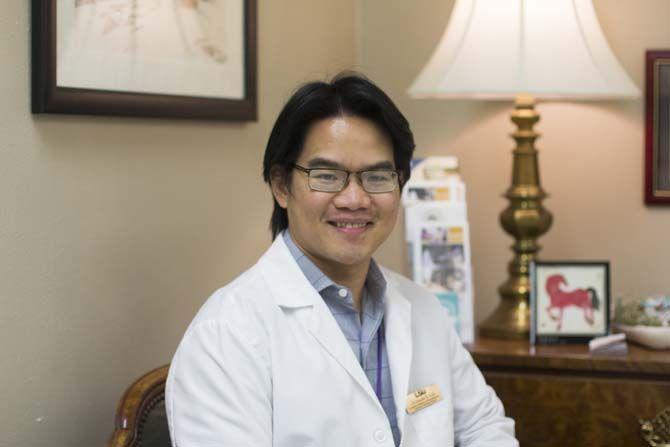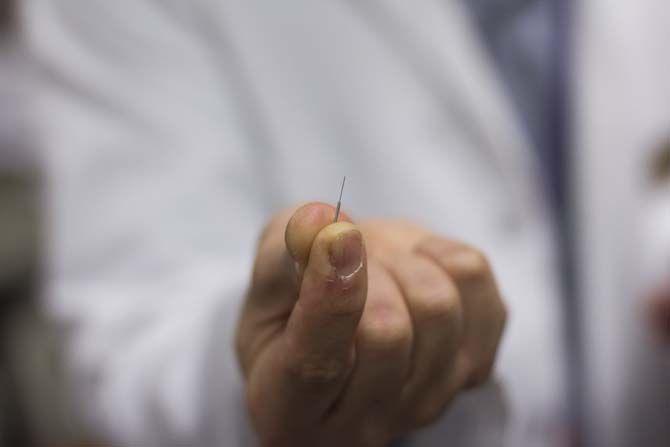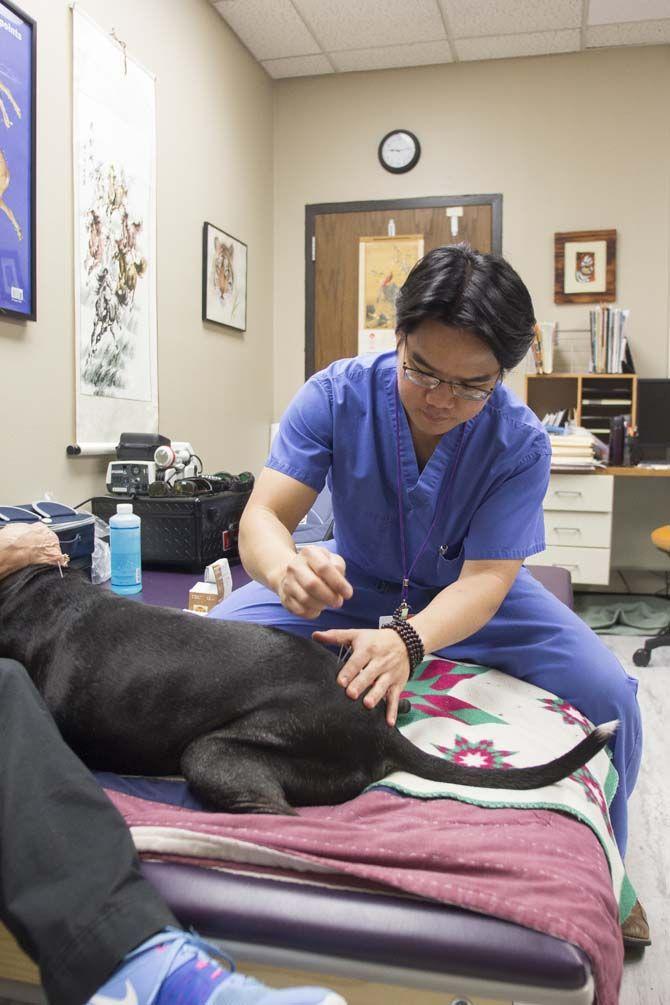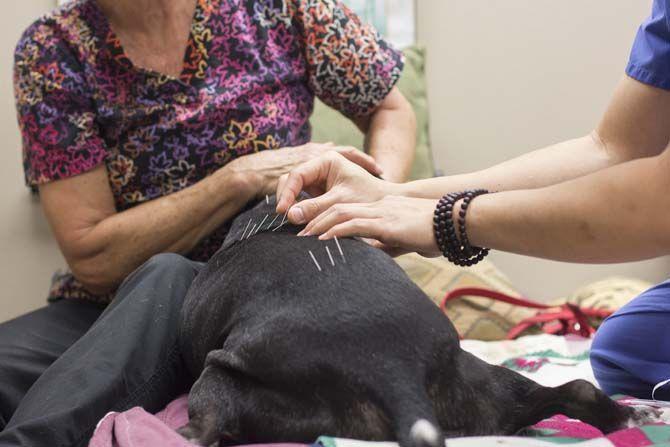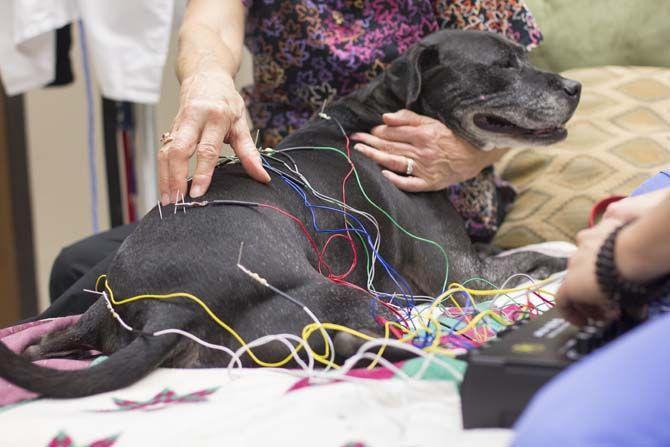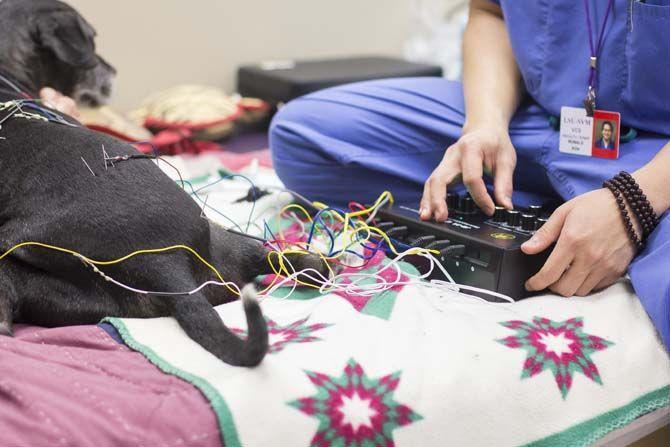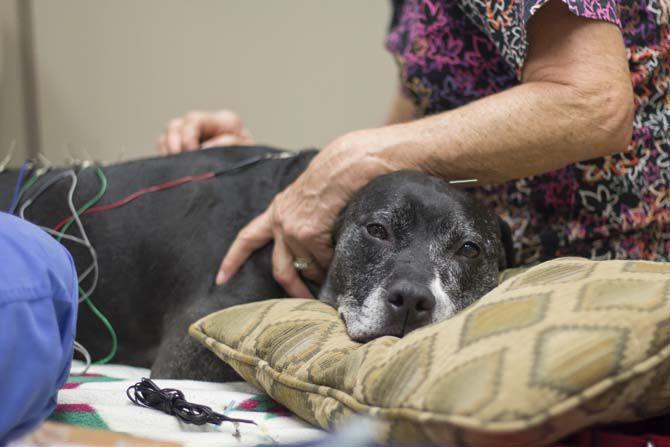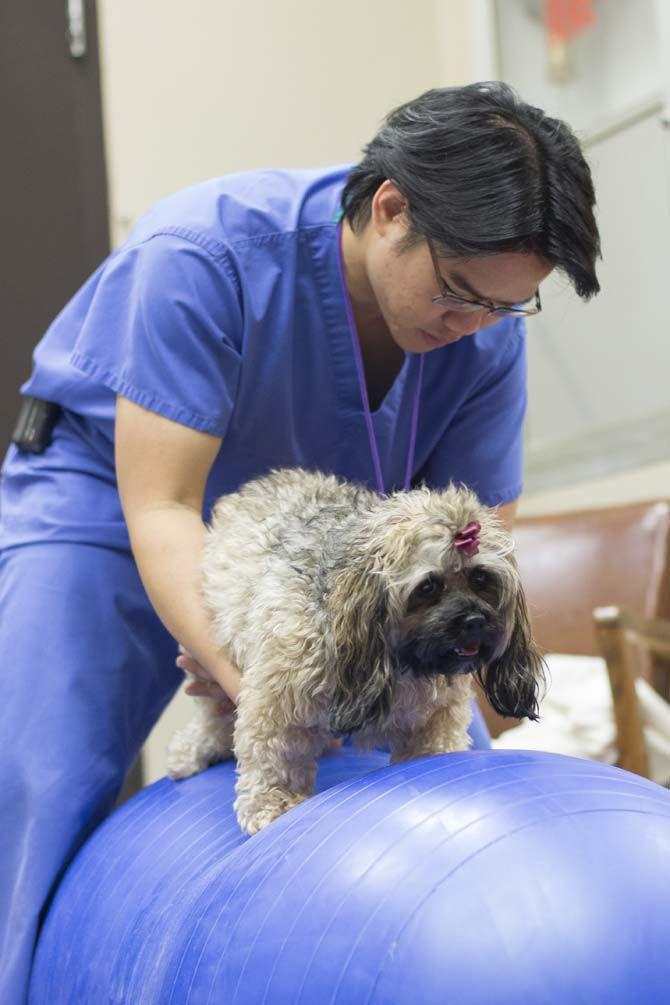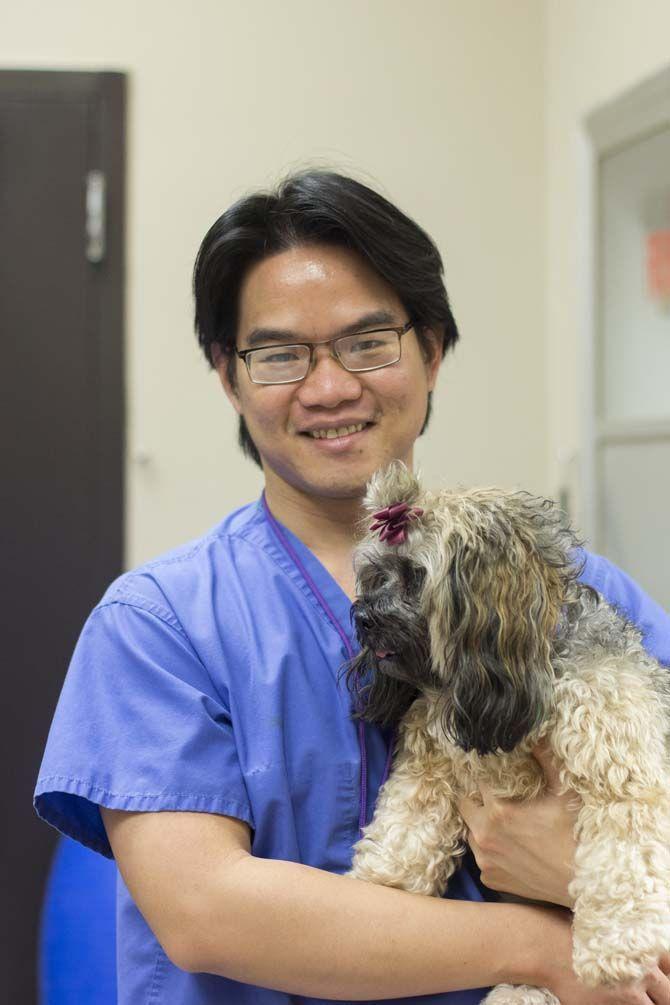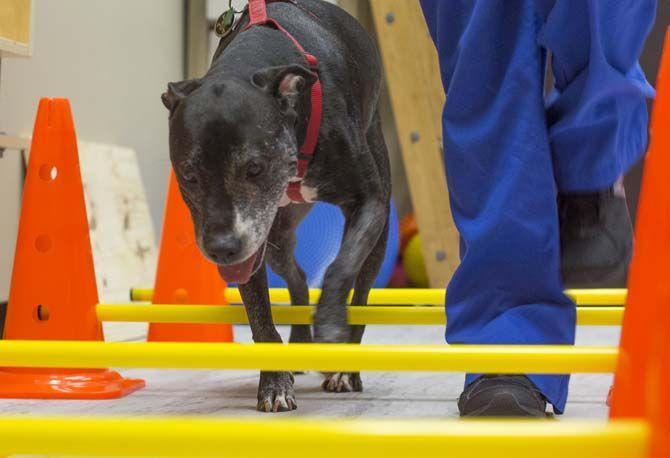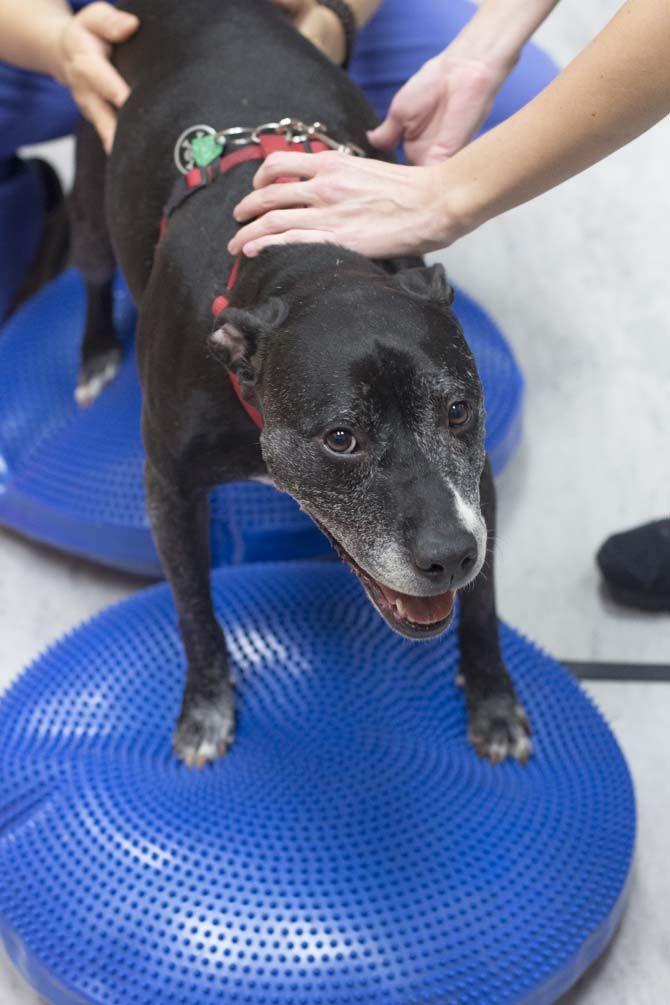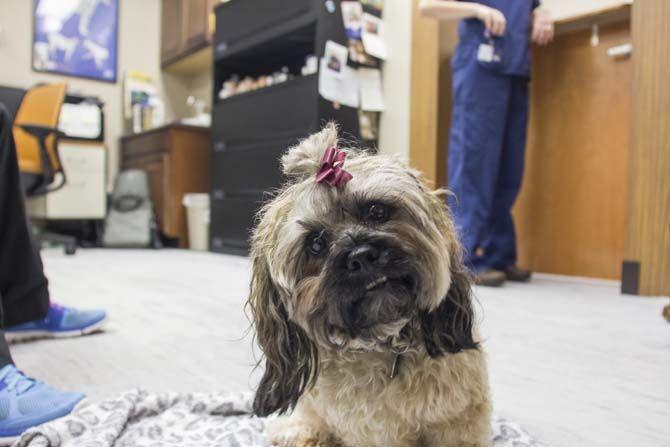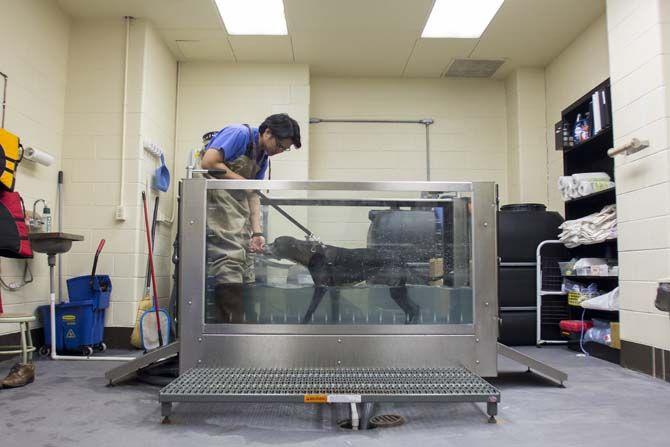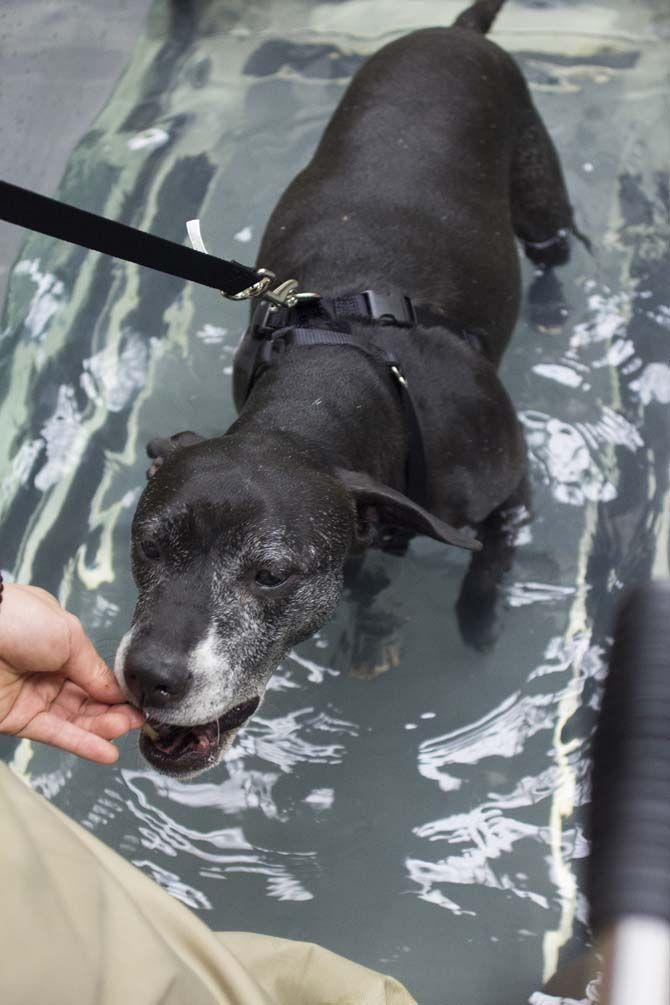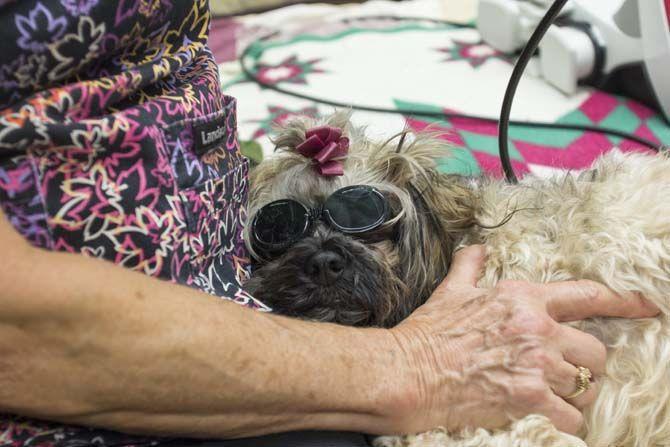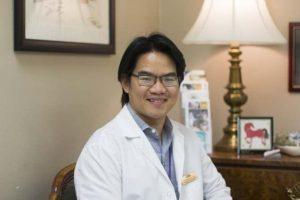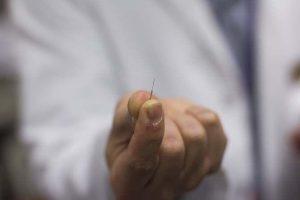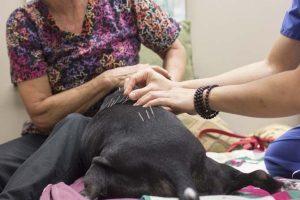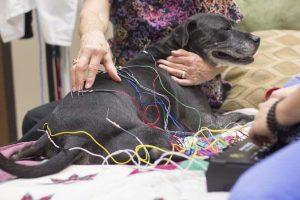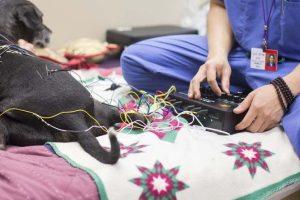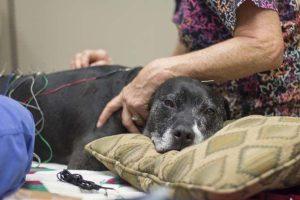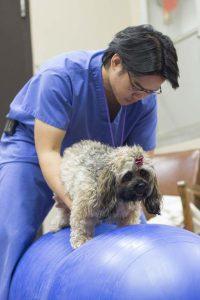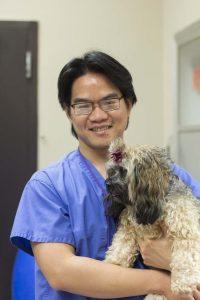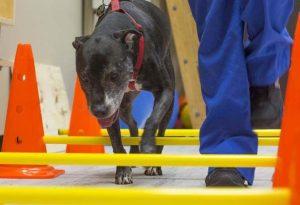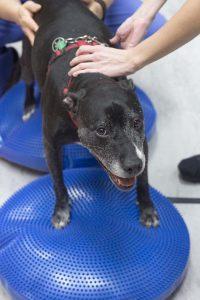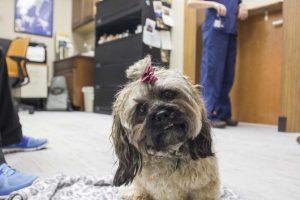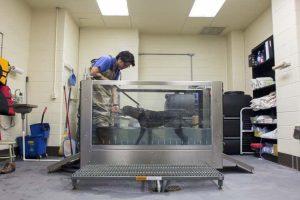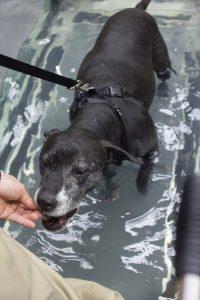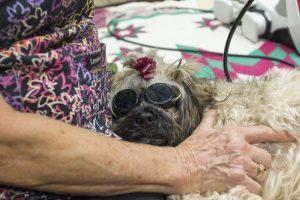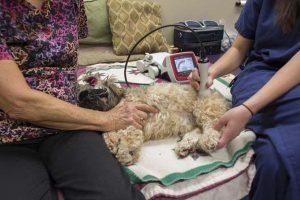Acupuncture isn’t just a service offered for spa-going humans — animals are receiving the treatment at the discretion of their owners at the LSU Veterinary Teaching Hospital.
As more animal owners hear of acupuncture and other non-traditional medical treatments, the amount of interest in integrative medicine has increased because it is cheaper than more common remedies.
The Integrative Medicine Service program at the LSU School of Veterinary Medicine began just over two years ago under the leadership of Vet School instructor and doctor at the Teaching Hospital Ronald Koh.
Koh said there was a dog diagnosed with terminal cancer at the Vet School before he arrived at LSU. Instead of putting the animal through radiation therapy, the owner decided to try acupuncture to alleviate her dog’s pain.
Because there was no acupuncturist at the Vet School at the time, the owner went to an outside therapist for treatment. The dog’s lifespan extended two years.
“She was disappointed that a teaching hospital didn’t offer such a very useful form of medicine,” Koh said. “She later donated half a million dollars to LSU to initially give students seminars on integrative medicines, but they later wanted to create a service for patients to get the service directly.”
In November 2013, Koh came from the University of Florida to LSU to lead the program. He said other areas of the clinic began to refer patients to the integrative medicine department. Although Koh began with two to three patients a week, the department now sees about 30 patients a week.
Koh administered acupuncture on animals such as horses, hedgehogs, macaws and other exotic animals, as well as domestic pets.
Acupuncture, herbal medicines, nutritional aid and physical therapy are offered under integrative medicine.
He said acupuncture is mainly used for pain control. When a needle hits an acupuncture point, it stimulates a nerve that causes a release of endorphins to alleviate pain. It can also help with nerve function, as acupuncture has been proven to stimulate joints.
“Not only do veterinarians want to learn more about integrative medicines, but so do the owners,” Koh said. “Some owners believe that common medicines cause side effects, which is true, so they want to use something that is more natural.”
Thin, fine-point needles are used to administer acupuncture. The needles are inserted at the acupuncture points and left undisturbed for 20-30 minutes. If requested, the needles can also be hooked to an electro-stimulation machine to boost their effect.
Rarely, animals will swallow the tiny needles when placed near the acupuncture points near their mouths, Koh said. Other dangers and side effects include expected bleeding when removing needles and soreness from the nerve stimulation. He said the procedure is usually very safe.
In some cases, acupuncture points can be injected with substances such as saline or B-12, a water-soluble vitamin vital in brain and nervous system function to lengthen the acupuncture’s effect. Since he rarely sedates the patients, Koh said he will apply acupressure — acupuncture with hands — if the animal doesn’t sit for other treatment methods.
“I’ll usually teach the owner how to do acupressure at home, as it’s something that can easily be done,” Koh said. “These owners like to know how they can help their animals as much as possible.”
In the spring semester, Koh teaches a class on integrative medicines. In his slideshows, he shows how acupuncture has helped a cow walk again after she was paralyzed giving birth. He said most students are open-minded to the treatment.
Ashley Ziegler, a non-matriculated student at the Vet School, began her two-week rotation with Koh on Monday. Already acupuncture-certified, Ziegler came to refresh her memory on animal acupuncture and learn other methods of integrative medicine.
“I became interested in [integrative medicine] because I wanted to be able to offer my clients and patients more than just general medicine,” Ziegler said. “It’s been really good learning from [Koh], and I think all of his patients are benefitting from it.”
Students who take Koh’s class are taught how to administer acupuncture and other forms of integrative medicine. They are often asked to bring their own animals into class for practice.
After her time at the Vet School, Ziegler said she will start work in a general practice hospital. Because of her experience in acupuncture and familiarity with other forms of integrated medicine, the practice is considering starting a program of its own.
She said learning integrative medicine is a useful addition to a resume and hospital program, as it shows an understanding of multiple medicinal methods.
“It’s really about learning,” Koh said. “Whether it’s students or teachers, learning that there is another form of medicine out there that they can learn how to do or get help in administering. It’s growing fast here at LSU, and I’m happy to be a part of that.”
LSU School of Veterinary Medicine builds up integrative medicine program with acupuncture treatments
November 19, 2015
Assistant Professor, Ronald Koh, specializes in Integrative Medicine and special treatments like acupuncture and laser therapy for small animals on Tuesday, November 17, 2015, at LSU School of Veterinary Medicine.




